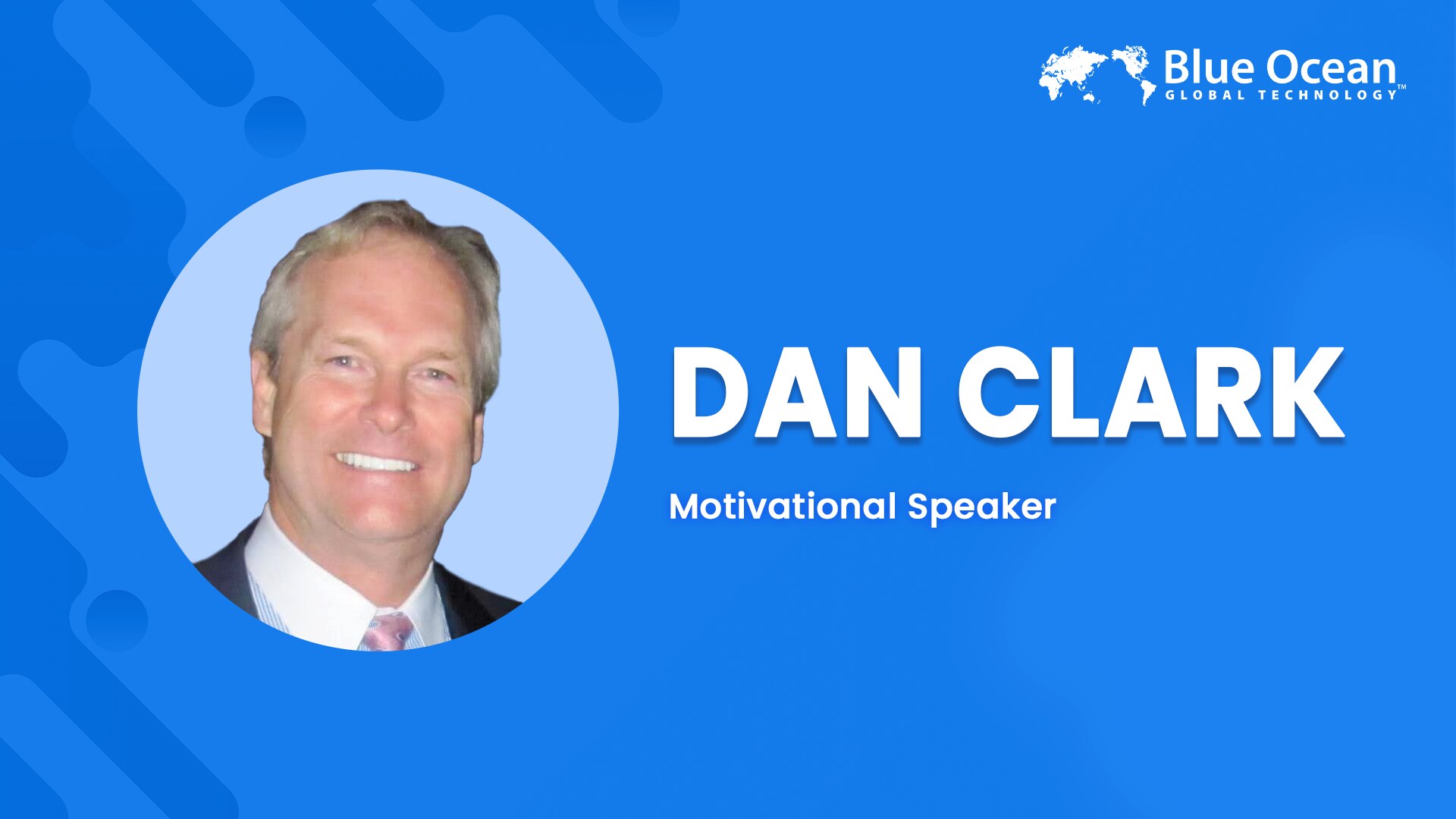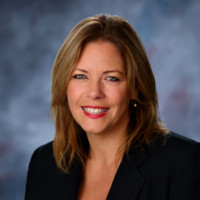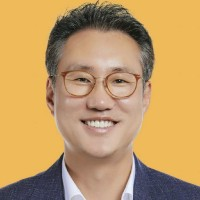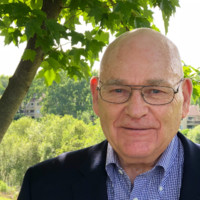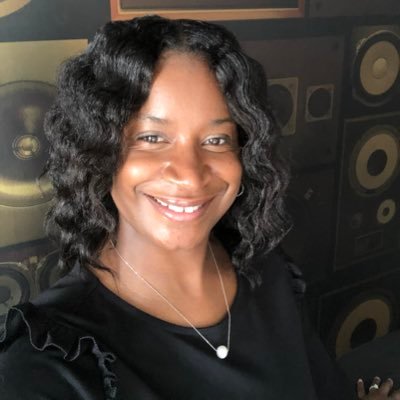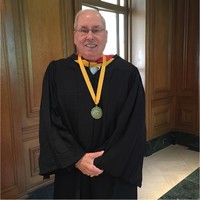About Dan Clark
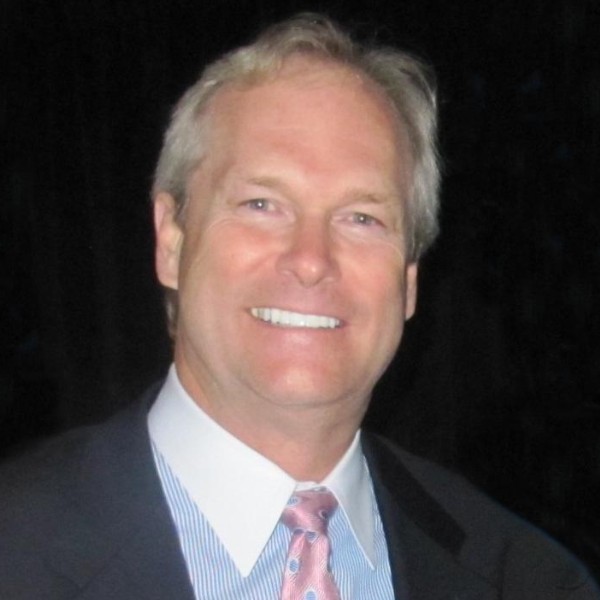
Dan Clark is founder and CEO of a multi-million dollar international communications firm; High Performance Business Coach; University Professor; Alumnus of the University of Utah; Podcast Host; Gold Record Songwriter; Screen Writer; Award Winning Athlete who fought his way back from a paralyzing injury that cut short his football career; New York Times Best Selling Author of 37 books on Leadership, Story-Selling, Building Winning Teams, Humor, Parenting, Public Speaking and Self Mastery illuminated in the highly acclaimed ‘Art of Significance’; and Dan is a primary contributing author to the Chicken Soup For The Soul series.
In 1982, Dan was named an Outstanding Young Man of America, worked in the Reagan White House until 1988, and as a professional speaker has been inducted into the Professional Speakers Hall of Fame in 2005 – and named one of the Top Ten Motivational Speakers In The World.
Dan has spoken to more than 6000 audiences, to 6 million people, in 77 countries, on 6 continents, to most of the Fortune 500, Super Bowl and World Cup Champions, NASA, the United Nations – and has shared the stage with the most powerful leaders and superstars on the planet!
As a master storyteller, Dan has been published in more than 50 million books in 50 languages worldwide, has appeared on over 500 television and radio shows, including Oprah, Glenn Beck, and NPR, and has been featured in Entrepreneur, Forbes, Inc., Career Ahead, Success, Sports Illustrated, Thought Masters, Nugent, Mayo Clinic, and Millionaire Magazines. Dan’s famous story, ‘Puppies For Sale’ was made into a film at Paramount Studios starring Jack Lemmon, musical score by Elmer Bernstein.
Blue Ocean: Could you tell us about your professional journey—what inspired you to pursue the Executive Coaching and Leadership Development industry?
Dan Clark: My personal journey began when I read the words of Mark Twain: “The two most important days of your life are the day you were born and the day you find out why.” What holds most people back is thinking that ‘self’ is discovered. No. It is created.
In my experience, and through hundreds of interviews with the world’s most successful people, the happiest and most significant individuals are those who know they were born hard-wired to progress; that the only person they need to be better than is the person they were yesterday; that no matter what their past has been, they have a spotless future. They don’t compete against others until they have competed against what they are capable of! Albert Einstein said it best: “Everybody is a genius. But if you judge a fish by its ability to climb a tree, it will spend its entire life believing it is stupid.” This is the mindset that has shaped both my personal and professional journey.
When I was eight years old, I had throat cancer, and doctors warned that if it progressed one more day, it would have eaten into my vocal cords and I’d never speak or sing again. I don’t recall a lot about being eight years old, but I do remember that this grim news sparked a deep emotional resilience in me that is triggered every time someone tells me, ‘I won’t get better,’ with a follow-up commitment, ‘oh yeah, watch me!’
At age 12, I acted in a weekly television show called “47 Happiness Way” and was the voice of a cartoon character. In high school, I outworked my competition to become a Golden Gloves Boxing Champion, Motocross Champion, Alpine Ski Racing Champion, and All-American football player and All-Star Baseball player, entertaining multiple college scholarship offers.
Growing up with an older brother and sister and a younger brother who were extremely high academic achievers, and not athletic, I was always compared to them in school, never felt like I was enough, and always felt I had to prove myself. I used to think my parents gave me conditional love, but later I realized they just saw potential in me that I hadn’t seen in myself. Now I know that no one can exceed our potential. We just misjudge it.
This belief pushed me to accept a football scholarship to the University of Utah, where I majored in Sports Psychology. I was projected as a first-round draft pick by the Oakland Raiders into the National Football League. But one day, during a practice tackling drill, the coach whistled “Go!” and another player and I ran full speed into each other in a violent head-on collision, and we slammed to the ground. For the next fourteen months, I was paralyzed—both physically and emotionally. My heart was broken, my dreams were shattered, and my successful and promising career came crashing down. I went to 16 doctors, 15 of whom told me I would not get better, and I spiraled downward until I hit what I thought was rock bottom.
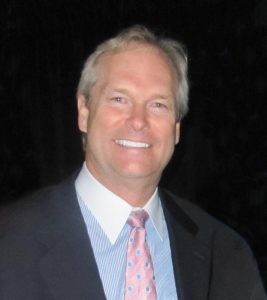
Now that I’ve recovered, I’m frequently asked three questions:
- What do you mean you “thought” you hit rock bottom? Answer: No matter how bad or tough it gets, nobody ever hits rock bottom. We hit rock foundation; we hit rock belief; we hit the baseline core values and governing principles on which we were raised.
- Why did I go to so many doctors? Answer: I kept going from doctor to doctor until I found one who believed I would get better—who turned probability into possibility, explaining, “Knowledge is power, but it has no heart. We don’t learn to know, we learn to do.” Reason leads to conclusions, but it is emotion that leads to action! Remember, the purpose of a leader is to grow more leaders who believe what you believe, not generate more followers. In sales, the goal is not to do business with everybody who wants what you have. The goal is to do business only with those who believe what you believe, so they choose you, not just somebody who does what you do. You don’t attract who you want. You attract who you are into your personal and professional relationships.
- What took me so long to recover? Answer: I stayed physically and emotionally paralyzed for 14 months because I was asking the wrong questions. I was asking the doctors how to get better when I should have been asking myself, “Why?” Once we answer why, figuring out the how becomes clear and simple.
You see, I thought I was a football player, and lost my identity, not realizing that it was just what I did, not who I am as a man. And when we identify ourselves in terms of what we do instead of who we are, we become “human doings” instead of human beings, unacceptable if success and significance are what we seek.
I stayed paralyzed because I stayed stuck in the past and didn’t understand resilience. The past is a place of reference, not a place of residence. The past is a place of learning, not a place of living. Resilience is not just bouncing back. It’s leaping forward. Resilience is not just about overcoming. It’s becoming. We can be challenged by what happens to us, but we can refuse to be reduced by it. Resilience is our consistent resistance to giving up.
Once I stopped focusing on having fame and chasing fortune and started focusing on my real purpose and becoming whole, I was able to persevere and do the hard things required to let go of my past and recreate my identity. I realized adversity makes you either bitter or better. When something is important to you, you will always find a way. When it’s not, you will always find an excuse. I realized you’ll never meet a strong person with a weak past. You never know how strong you are until being strong is your only choice.
When I finally got tired of tolerating less than I deserved, and my ‘why’ became bigger than my ‘why not,’ I took it upon myself to invent my own therapy. Twenty months after my accident, I had fought my way back to a 95% recovery!
My professional journey began during this journey of healing and self-discovery, which led people to ask me to speak. I was invited to talk about resilience, motivation, change, and leadership. Although I had taken the LSAT Law School entrance exam, because the number of speaking opportunities continually increased, I decided not to become an attorney and instead became a full-time professional speaker. Since 1982, I’ve spoken on more than 6,000 stages in 77 countries and written 37 bestselling books. I’m also a primary contributing author to the Chicken Soup for the Soul series, which has sold over 400 million copies.
I learned that people don’t buy what we sell; they buy what we believe. They don’t buy what we do, they buy why we do it. What we believe and why we do what we do is our ‘story.’ That’s how I became a speaker, author, leadership development coach, and master storyteller, which has given me a 40+ year career doing my part to change the world one story at a time!
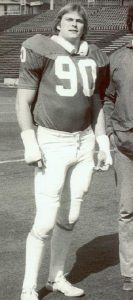
Blue Ocean: What does a typical day in your life look like?
Dan Clark: I follow a suggested daily regimen I learned from a mentor Ed Mylett, who divides our stereotypical 24-hour day into three days. 6 a.m. to 12 noon is day one. 12 noon to 6 p.m. is day two. 6 p.m. to 12 Midnight is day three. It’s based on human nature to want to win, and when we win (finish a project, accomplish a goal, close a deal) in the morning, we usually take the rest of the day off. When we win in the afternoon, we usually take the rest of the day and night off. To avoid this complacency, the Three-Day ‘Day’ motivates us to win in each of the three segments in every 24 hours.
Consequently, I wake up every morning at 5:00 a.m. to follow a personal practice I call a Righteous Routine comprised of ‘Holy Habits.’ I believe that if you’re selfish in the morning, you can be selfless for the rest of the day. So, I wake up every single morning at 5:00 a.m. before anyone in my home is awake. Before I have any responsibilities as a spouse or parent. Before anybody is in their office. Nobody’s calling. It’s pure silence. I got to the gym in my home. On one side is a cold plunge that’s 42°F. I get in for six and a half minutes. It’s brutal, but it makes me mentally tough. And physiologically, it resets the Vagus Nerve, which is critically important. It gives me a seven-hour dopamine rush and burns between 830 and 940 calories as my body naturally warms itself back up. It’s the best natural weight-loss and mental toughness program on the planet, and I’m only six minutes into my day.
While I’m numb, I lift weights and exercise on the Precor for a hard 45 minutes while listening to a podcast to learn something new every day! After the gym, I go to my library and read. I’ve read one book a week for the past 16 years. That makes me more educated, more interesting, more compelling, and better at storytelling when I teach or speak. I study philosophy, psychology, nutrition, art, science, religion, and even taught myself French! Remember, we humans are hardwired to want progress, and the happiest people are the ones who know more, serve more, and do more today than they did yesterday.
This is my Monday through Friday morning routine, which allows me to create myself into a different, better version of myself before 7 a.m. when my wife, family, and business need me. This gives me my first Win for the day in the segment 6 a.m. to 12 noon, with two more segments left in the day to Win twice more before I go to sleep for the night.
I devote Saturday to fun and recreation with family and friends. I’m a man of faith, so Sunday is my Sabbath; my day of rest. It’s essential to have a day to recalibrate. On Sundays, I unplug from the noise. I commune with nature. I fill my soul. And I prepare to begin the six-day cycle again.
Many have asked how and why I was honored as the Utah Father of the Year when I have logged over 6 million miles flying on Delta Airlines in a 40+ year career – delivering 6000 speeches in 77 countries. The answer is simple, not easy, just a simple solution. To create and sustain our loving, supportive family togetherness, my wife and I had to understand that work/life balance is unachievable. It’s an either/or proposition, where if I spent more time at work, our family time diminished, weakened, and suffered. And if I spent more time with the family, my opportunities to grow and succeed in business were deluded.
So, instead of trying to be a ‘multi-tasker,’ we decided to become jugglers. A juggler only controls the ball in his hand. Once he lets go of the ball, he no longer holds it, and has relinquished control, so why worry about it? This allows us as parents to focus on the ball in our hand (the child, or issue, or job task), and be present in that moment until we can let it go and catch the next ball that requires immediate attention. In juggling, it is not about the catch, it’s about the throw, so we became great at delegating and prioritizing and keeping the most important balls from dropping, which are Faith, Family, Work, and Service to others.
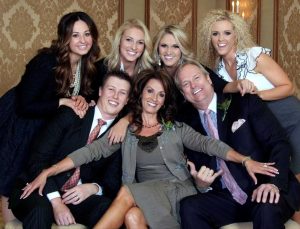
Blue Ocean: Which emerging trends in your industry most excite you?
Dan Clark: I think the emerging trend in my industry is AI. Everybody’s running scared. When you’re an author and you can ask ChatGPT to write you a speech or a book, everybody’s saying AI is going to take over the world.
And I say, ‘No, it’s not.’ Because you can never eliminate the human element from AI. AI is a tool. Where, when, why, and how we use it will always be a choice.
What we must understand is that the human element in AI still requires a high-quality prompt. Humans are engaged with emotion, with thought, with feeling, and AI cannot create that. We must remember: reason leads to conclusions, but emotion leads to action.
AI can always do certain things better than humans. It will always be better at analytics, creating a strategic direction, and putting us on course. But the one leadership responsibility and role that we will always have as humans is to be human; to inspire, motivate, and encourage, which AI cannot do.
Blue Ocean: What do you believe is the key to your success, and how do you stay ahead in such a competitive environment?
Dan Clark: The key to my success is to constantly strive to achieve the level beyond success called ‘Significance.’ Let me explain by sharing a conversation I had with a football teammate who was drafted into the National Football League in the second round by the Philadelphia Eagles. After two years with the Eagles, he was traded to my Oakland Raiders. After only four years in the league, playing at the highest superstar level, one day he walks out of practice, quits, never to play again. Why? He loved being a football player, but he hated playing football. He got what he thought he wanted, competing against others. But because his inner voice and true purpose in life were misaligned with who he was and what he had to do to become successful, he would never live a life of significance and would die with his music still in him.
Bottom line. Successful people get what they think they want by focusing on what matters at the moment. Significant individuals want what we get by focusing on what matters most, which is what lasts the longest. The secret to transforming our lives from successful to significant is captured in the mindset, heart-set, and rules of engagement that I teach in my public speaking course: Seek to bless, not impress. If you’re nervous before you speak, it means you think it’s about you. But if you’re excited before you speak, you know it’s about the audience.
My mentor Zig Ziglar taught the world that “We can get anything in life that we want when we are willing to help enough other people get what they want.” That wealth flows through you, not to you. When we turn every sales pitch into a ‘serve pitch,’ and make every personal and professional interaction about service before self, everyone will always leave us saying, “I like me best when I’m with you. I want to see you again.” Therefore, my secret to Significance is a simple three-step process: first, figuring out who I am, what I believe, and why I believe it. Second, committing to learning more today than I knew yesterday. Third, relentlessly pursuing excellence in all I do to create a ‘Win’ in each of the three segment ‘Days’ in every 24-hour day. Fourth, serving my God, Family, Country and fellow human beings in a deliberate, meaningful way.
Regardless of what you have heard, we are not all in the same boat! We’re all in the same storm. Some of us are on expensive yachts. Some of us are in canoes. And some of us are drowning, just trying to tread water. So, let us be more empathetic towards every person’s situation. Your pain is different from my pain, my hard is different than your hard, but we all have it. We are literal brothers and sisters in the family of humanity. The same God who made me, made you too! How do I know?
A few years ago, on October 22nd and 23rd, I had the rare opportunity to soar to the edge of space in a U-2 reconnaissance aircraft. I arrived at the base, received my flight physical, was fitted into a 130-pound space suit, introduced to my commander, and we climbed aboard the aircraft. We soared to 17 miles (27 kilometers) above the Earth’s surface, where for five hours, I sat in the sounds of silence, looking at the breathtaking curvature of the Earth, gazing into the endless blackness of the universe, pondering eternity and my place in it.
With tears in my eyes, I became an eyewitness to the words of Ralph Waldo Emerson, who said: “The mind, once stretched, can never return to its original dimensions.”
I also reflected on the words of Einstein, who taught, “Although the concept of a Master Organizer and Supreme Being is complex, we must embrace the mindset of a young child who walks into a large library and says, Surely someone must have written all these books.” It was clear that we are more than mere mortal beings living on a small planet for a short season. When we landed, I became a curious student of where we came from, why we are here on Earth – concluding that our purpose is to become everything we were born to be, fulfilling the full measure of our capacity and potential as a human being; and the meaning of life is to serve others in a greater cause than ourselves, and finding answers to where we go when we die. Bottom line. The only things I can take with me when I die, I had aboard with me on that aircraft: My character, my education, my beliefs and convictions, and my memory of whether I made a difference, not just a living.
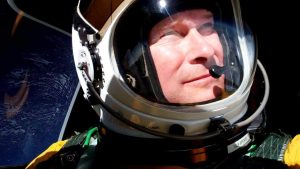
Blue Ocean: In your experience, what qualities separate those who excel in their field from those who don’t?
Dan Clark: The answer is three-fold: First, establish your irrefutable core values and governing principles by which you will live your life. When you know what you believe and why you believe it, 99% of all decisions are already made. My Seven Core Values are Integrity, Duty, Honor, Respect, Service Before Self, Personal Courage, and Commitment to Excellence in All I Do. To turn these Values into daily action, I consciously strive to be Trustworthy, Loyal, Helpful, Friendly, Courteous, Kind, Obedient, Cheerful, Thrifty, Brave, Clean, Reverent, and dependable.
Second: Realize that Competitive Advantage in your school, in your place of employment, in the marketplace, in your country, and in the world, is never created by doing more than your competition. It’s created by doing what your competition is not willing to do.
Third: Only make promises that you can keep and always keep your promises! Do what you say you are going to do, when you say you are going to do it.
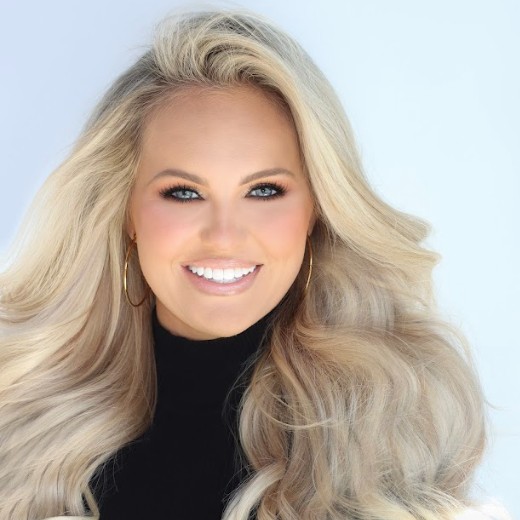
Blue Ocean: How do you approach mentoring and guiding the thousands who want to do what I do?
Dan Clark: Every day, someone asks me, “Can you coach me on storytelling?” or “Do you have a course on public speaking?” I say, “Sure, but they need to answer two questions to let me know they are serious. To become a professional speaker, your motivation cannot be money or an ego-trip found in a standing ovation. So, I ask, “What would you drive five hours one way to say to someone for free? If you wouldn’t, then I’m not interested in helping you. Speaking must be a “calling,” where you deeply feel the need to share your experiences and stories because you know they could save a marriage, influence someone from taking their life in suicide, or kickstart someone’s entrepreneurial idea.
The second question inspires them to focus on their message: If you had one hour to live, what would you say to your family, co-workers, and the world? What would be your “Last Lecture?”
When they answer these two questions in the affirmative, the next question from the individual seeking my mentorship is usually, “But I’m afraid to speak in public, and I don’t know where to begin.” I smile and remind them:
- The #1 fear of people is not speaking in public. The #1 fear is not speaking well in public. When you are prepared, you shall not fear!
- When you become successful and significant, people expect you to share your stories at the same high level of excellence that created them. The secret to standing out in any crowd as a leader, coach, sales professional, and friend is to become an articulate, eloquent communicator!
- I then teach them my Speakers Triangle, noting that every person, in every conversation, craves the answers to three questions. Regardless if it’s one on one at lunch, one on 20 in a board room, one on 200 in a company meeting, or one on 20,000 in an arena, everybody needs to know:
- Why should I listen to you? Have you done it? Are you currently doing it? I’s the credibility piece.
- Second: Can I do it too? With my past, limitations, weaknesses, and strengths. It’s the possibility piece. Remember, we seek to bless, not impress – it’s about them, not us.
- Third: How do I do it? That’s where your system and strategy come in. How do I get from where I am to where I want to be? That’s how you shift from being a talker to a teacher. If you have a story that could save a life, a relationship, or a dream, you’re morally obligated to share it. That’s why I coach others on the art and science of storytelling.
- This is the difference between someone who recites a speech as a professional presenter and someone who shows up to serve as a professional speaker. To customize every speech, I always ask the event planner/meeting professional: “What’s your Meeting Theme? Purpose? Who are the Attendees and their challenges and needs? What’s your desired message, outcome, and expectation for me? I then draw from my research and personal experiences to deliver an authentic, inspirational conversation that provides real solutions and usable action step/takeaways that every attendee can immediately implement in their lives when they return home and to work.
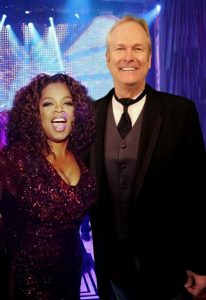
Blue Ocean: What is something you are most grateful for, either professionally or personally?
Dan Clark: I’m grateful for my understanding that anybody in this world, if they dream a big enough dream and are willing to sacrifice, work hard, and serve others, can make that dream come true. Anybody, in any country, in any socioeconomic situation.
I recently spoke at a women’s conference in Malta, with multiple countries represented. I wanted to make sure that everyone in the room understood my view of gender equality and my deep respect for women.
I shared a story from when I was the keynote speaker at the first Women’s Military Symposium in Washington, D.C. When I walked into the room, there were 3,000 women in uniform. It was unbelievable. I began by mentioning my friendship with three-star Air Force General Maggie Woodward. I said, “With all due respect to all of you women, the finest female general officer in the United States military is my dear friend Maggie Woodward.” She stood up, interrupted my speech, and said, “Danny, I’m not the finest female general officer. I’m one of the finest general officers who happens to be female.”
I agreed and saluted her. Yes, a person can climb into the cockpit of a fighter jet, bomber, or commercial airliner, and the pilot can be male, female, black, white, or brown, and the jet does not care! The only thing that matters is whether the pilot is educated, trained, and qualified to fly it and push it to its ultimate capacity and potential. Under pressure, we don’t rise to the occasion. We fall to our level of training. That’s why we train. Prepare and practice so hard!
I’m grateful for understanding that regardless of our circumstances, whether it’s our race, country, ethnicity, or religion, we can all dream. When we back it up with education and action, when we’re willing to learn from mentors, reach out to coaches and instructors, and work hard, we can make it happen. I’m grateful that even in countries where it’s hard to break free from oppression, we can still strive to become better today than we were yesterday. And then, we can help others who can’t help themselves because we’re all brothers and sisters in the family of humanity. I’m grateful for life. I’m grateful for opportunities to see things not as they are, but as they can become, including ourselves.
If I had two truths that I live by they would be:
“Today you’ve never been this old before, and today you’ll never be this young again. So, right now and every right now matters. Go for it!”
And… “It is not enough to say I will do my best. We must succeed in doing that which is necessary!”
Conclusion
Dan Clark’s journey symbolizes the core principles of humanity: dreams, hard work, discipline, resilience, endurance, and the relentless drive to be better today than he was yesterday. His career as a motivational speaker and author represents his triumph over diseases, accidents, and emotional upheavals. As a beacon of inspiration and a pathfinder, Dan’s mission aims to encourage social and personal responsibility in people through his masterful storytelling.
You can contact Dan at:
Danclark360.com
Do you have a personal or professional story that can inspire other people into becoming the best version of themselves?
You are welcome to share your journey with our audience.

